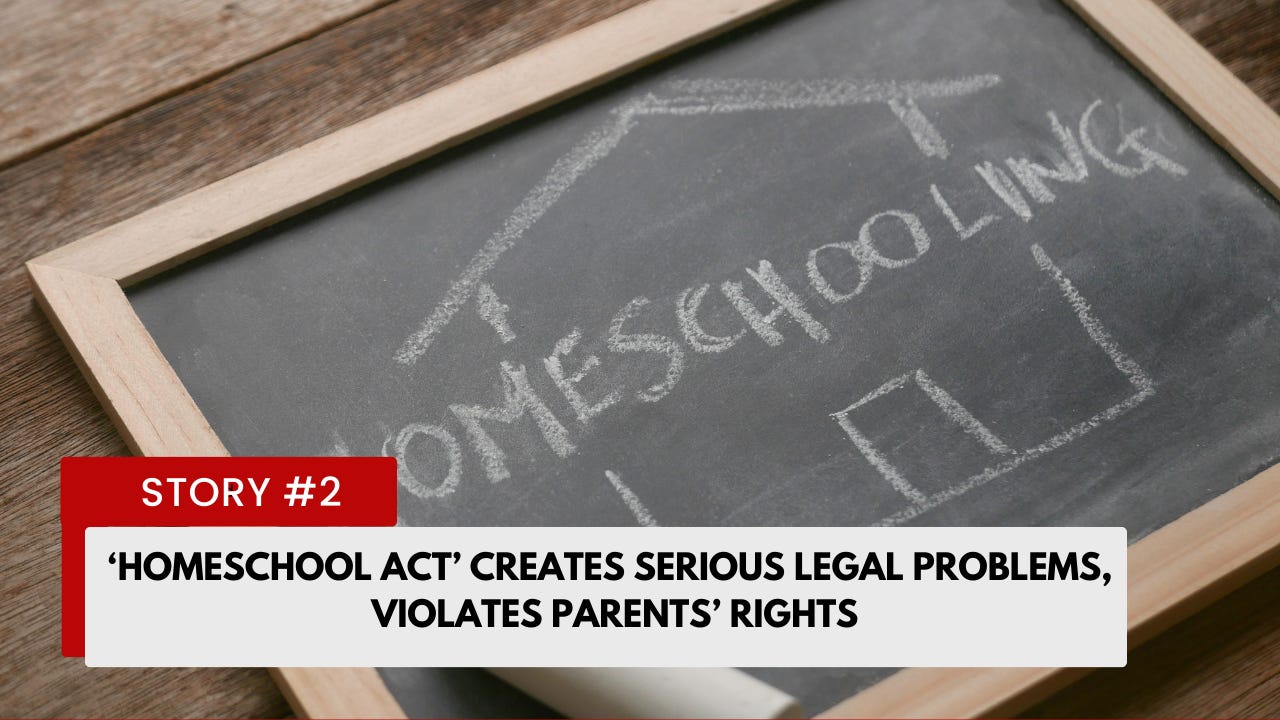

NASHVILLE, TN - At the risk of angering all the people who will scream from the rooftops that “correlation doesn’t equal causation,” like it’s some kind of Scriptural edict, here’s some data that’s worth considering. From 1980 to 2020, the share of male teachers, in both elementary and middle schools, declined from 40% to less than 20%. Men have mostly stopped teaching young children in school. And during this same period, as men have abandoned elementary schools, there’s coincidentally been another major change in childhood education: Everyone’s being diagnosed with ADHD.
More than 21% of 14-year-old boys in this country now supposedly suffer from this condition. The number goes up to 23% for 17-year-old boys. As a result, prescriptions for drugs like Ritalin and Adderall have skyrocketed. From 2012 to 2022, the total number of prescriptions for stimulants to treat ADHD increased dramatically by nearly 60%. Boys between the ages of 10 to 14 were the demographic that saw the highest increase in these prescriptions.
For decades, you’ve been instructed to believe there’s no significance to this correlation whatsoever. As women increasingly enter the workforce and replace men in teaching jobs, we’re not supposed to draw any conclusions about how the behavior of male children is now being addressed. Click here to read more.

CHICAGO, IL - One hundred years ago, the U.S. Supreme Court recognized parents’ right “to direct the upbringing and education of children under their control.”
That right is currently under attack in Illinois because of the “Homeschool Act.”
House Bill 2827, filed by state Rep. Terra Costa Howard, D-Lombard, has generated historic opposition in the Illinois General Assembly, and for good reason. There are multiple legal pitfalls in the current version of the bill.
The 14th Amendment to the U.S. Constitution provides states cannot “deprive any person of life, liberty, or property, without due process of law.” That language routinely has been applied to the education context, including a parent’s right to direct the upbringing of their child.
But the provisions in HB 2827 threaten families’ due process rights in multiple ways. First, it allows truancy officers to interrogate children without “cause” and without parental presence. Second, it allows parents to be investigated – and again, their children to be interviewed – based on anonymous reports.
Then there is the threat to parents’ religious liberties. The bill allows government bureaucrats to investigate and create lists of what families are using religious curricula. Click here to read more.

WASHINGTON D.C - More than 1 million Californians and Texans are about to face a new level of financial surveillance from the federal government. Although cash transactions over $10,000 have long been reported under current law, now many transactions of as little as $200 will have to be reported in 30 ZIP Codes along the border with Mexico. Financial surveillance in the United States has needed reform, but this policy marks little more than another intrusion into the lives of Americans.
The new policy was officially announced by the Department of the Treasury’s Financial Crimes Enforcement Network to “further combat the illicit activities and money laundering of Mexico-based cartels and other criminal actors along the southwest border of the United States.” Starting in April and continuing at least into September, people in San Diego and Imperial counties in California and in Cameron, El Paso, Hidalgo, Maverick and Webb counties in Texas can expect additional scrutiny when using businesses that provide services such as check cashing, money orders, currency exchanges and money transfers.
Every day, people visit businesses like Western Union and Ria Money Transfer to cash paychecks, send remittances to family or even just exchange unused pesos after a trip to Mexico. Yet people in the designated areas now will be reported to the federal government if they need to send or collect as little as $200 at these businesses. Click here to read more.

LEXINGTON, Ky. - A Kentucky man known as the oldest Pearl Harbor survivor has died at 106 years old.
Vaughn P. Drake Jr. was one of the last known survivors of the attack on Pearl Harbor and believed to be the oldest before his death, according to a release.
Drake was reportedly 23 years old when he was stationed at Kaneohe Naval Air Station on Oahu as an Army engineer during the attack on Dec. 7, 1941.
Beyond Pearl Harbor, Drake also witnessed the Battle of Saipan, a turning point for the U.S. in World War II.
Drake received several commendations, including the World War II Victory Medal and a special congressional medal dedicated to Pearl Harbor veterans.
After the war, Drake returned to Kentucky where he worked as an engineer in the private sector.
He is survived by his wife of 65 years, Lina Wilson Drake, and their son, Samuel Drake. He also has two grandsons and three great-grandchildren.
“To us, he was more than a hero,” Samuel Drake said. “He was a devoted husband, a loving father and grandfather and a humble man who lived with integrity every single day.” Click here to read more.

EAST PLANO, TX - A United States senator from Texas wants federal prosecutors to investigate a proposed Muslim-led community development for possible religious discrimination against Christians and other faith groups.
In a letter dated April 11 to Attorney General Pam Bondi and Assistant Attorney General for Civil Rights Harmeet Dhillon, U.S. Senator John Cornyn, R-Texas, urged the U.S. Department of Justice (DOJ) to investigate the East Plano Islamic Center (EPIC) for its plans to build a “community of thousands of Muslims” known as EPIC Ranches City.
Since a marketing campaign was launched last month, the 402-acre project has raised concerns from Cornyn and state officials, including Gov. Greg Abbott and Attorney General Ken Paxton, about violations of federal and state laws. Meanwhile, Muslim advocacy groups have decried the scrutiny as discriminatory, calling for a federal investigation into Texas officials’ actions. Click here to read more.




















